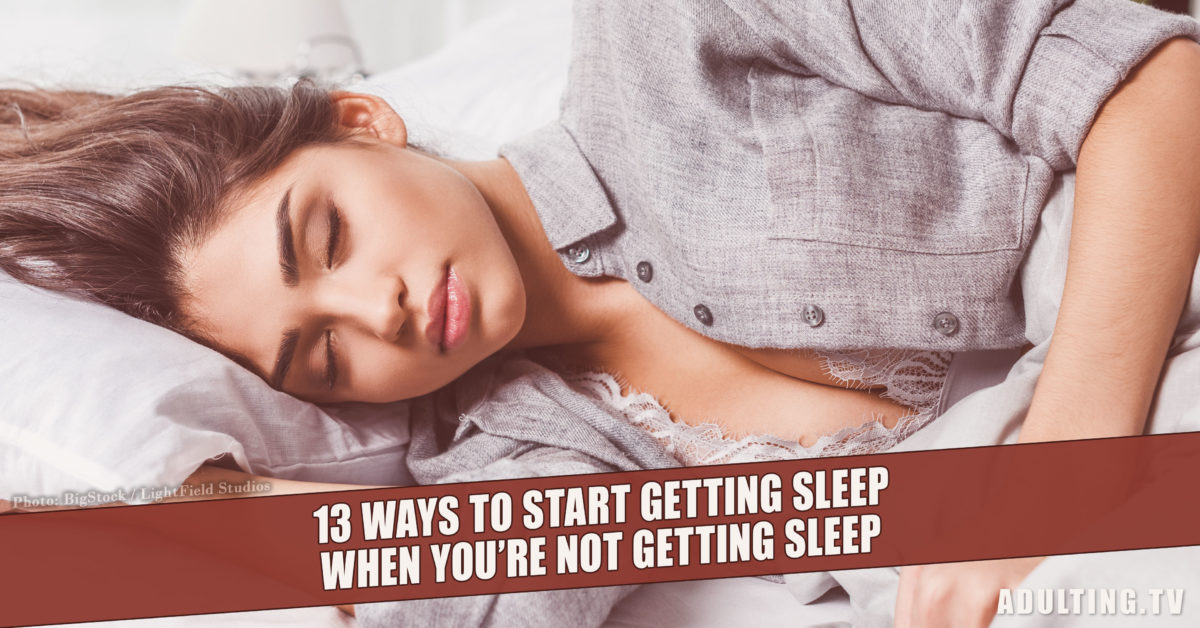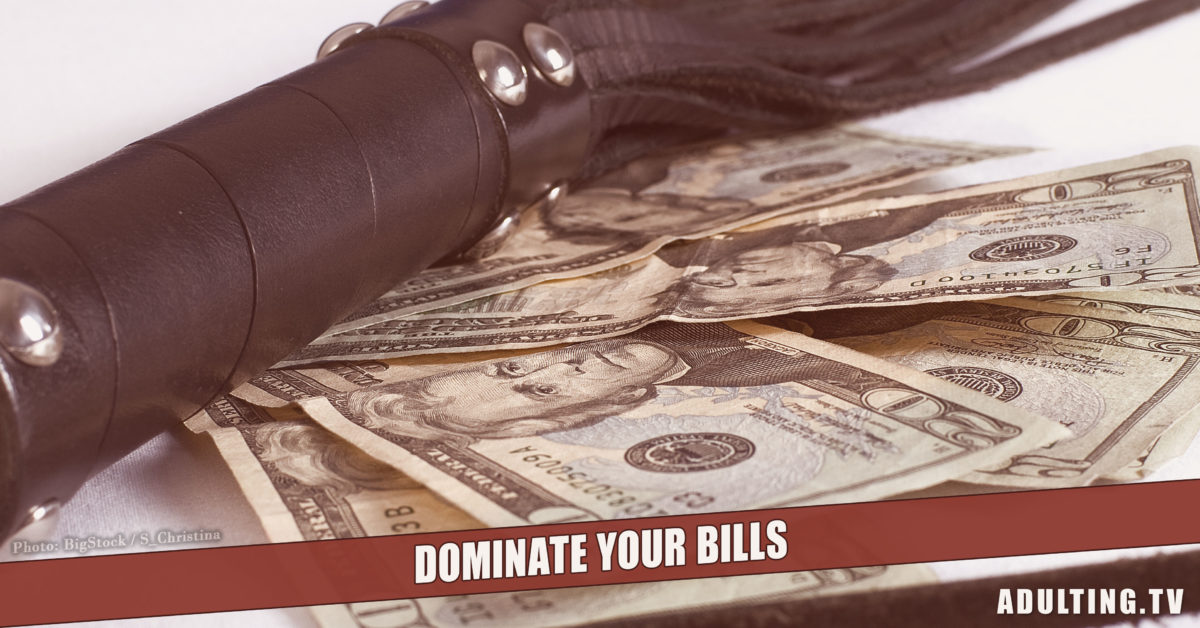It’s that time of night: you’ve counted all the sheep. All that’s left are the lambs that won’t stop crying.
You’ve tossed.
You’ve turned.
You’ve fluffed and flipped, but you haven’t dozed.
Once is bad enough. But night after night? Soon you’ll really know why the lambs are crying.
Sleep shouldn’t be the most stressful time of your day — and it doesn’t have to be.
Check out these 13 recommendations to start getting sleep when you’re in a pattern of not getting sleep.
1. Go yellow.
It’s a very modern problem: today’s technology is all about the blue light. It’ll keep you up like the green light kept up Gatsby.
Blue light is high-energy light, and it’s amazing and serves wonderful purposes, such as increasing alertness, memory, and cognitive function.
As you know, though, those are some of the last effects you want when you can’t fall asleep.
About two hours before bedtime, shift your digital devices to yellow. Windows has the Night Light. Mac has its Night Shift. For phones and tablets, there are f.lux and Iris. These will help your brain calm down with lower energy light — and you can start getting sleep.
2. Go dark.
In our caveman days, the light went out automatically out for us.
Over millennia, humans were conditioned to grow more tired as the sun went lower. Then Edison put a wrench our natural sleep cycle. With modern technology and Netflix’s string of hits, it’s impossible to get to bed some nights.
Let nature work in your favor, sending your brain signals that it’s time to wind down. When the yellow filters start to show on your digital devices, start to turn down and then turn off your lights and television.
As your body adjusts to these signals, you’ll start getting sleep more easily.
3. Get regular.
Yes, that’s important, too. But, for our purposes today, we’re talking about creating a regular pattern of habits before going to bed each night. The right pattern will condition your brain to learn that bedtime is coming.
Here are some of the bedtime habits you can foster to help provide the right cues for your body:
- Turn off your technology.
- Start turning down the lights.
- Brush your teeth.
- Wash your face (or, if you shower at night, take your shower).
- Drink a warm liquid.
- Do a little light reading.
- Stretch.
Figure out a bedtime routine that works for you, and try to stick to a schedule when possible. You might not always get to bed at 10:30 p.m. exactly, but when you time things, you can perhaps get to bed at a range from 10:00 p.m. to 11:00 p.m., and that consistency can help you.
4. Calm yourself.
It’s hard shifting from our fast-paced, constantly connected culture to lights-out.
With all the messages we must process and all the decisions we must make, these can all come flooding back as soon as we put our heads on the pillow.
Any type of meditation that helps you calm down and clear your mind is perfect.
However, Qi Gong meditation is specially designed to help alleviate stresses of all kinds. It’s the perfect meditation to help you forget that important email you read just before leaving work or that minor altercation you had on the highway.
After turning off all distractions, find a quiet, comfortable place to sit. Sit however is most comfortable for you. Then, close your eyes and simply pay attention to your natural breaths. If a thought crosses your mind, no worries. Just push it away.
Or, if you prefer, get comfortable on your bed and meditate yourself to sleep.
5. Write.
The act of putting pencil to paper is calming for two main reasons:
- First, it’s an organic experience that’s naturally calming.
- Second, journaling is a reflective process. This means it’s an exercise in self-awareness. You can examine your experiences of the day and put them behind you.
If there’s something important to remember or a problem to solve, writing these down is great for clearing the mind. Once you’ve written down what you must remember, you can forget about it. When you’ve worked out your problem, you can move onto the next task — start getting sleep.
6. Read.
I love to fall asleep while reading in bed.
Don’t get in the habit of staying up long nights in bed reading books from cover to cover like a college student. Instead, crawl under the sheets, put your head on the pillow and read few pages.
Studies show that reading in bed reduces stress levels and beat many other recommendations for falling asleep fast. An entertaining book is a good way to get distracted from what’s keeping you up at night. It’s also a good primer for what dreams may come.
If you can read more than a few pages before falling asleep, your book is either too entertaining or you need to complement your reading with other tips on this list.
7. Talk it out.
Remember how hard it was staying awake in that English Lit class? The professor droned on endlessly like Ben Stein in Ferris Bueller’s Day Off. Yeah, that’s what we mean by getting talkative.
The key with this tip is to finding calming, soothing voices. So, maybe that political radio show isn’t your best choice.
If AM and FM can’t help you, download stories on Audible. If you’re like me, listening to anyone talking when the lights are out is enough to help me fall asleep.
If you can’t find the right story or voice, download the Sleep with Me app. It has over 600 hour-long sessions with people talking about nothing important. Its sole purpose is to bore you to sleep.
Is the Sleep with Me app is more likely to bore you to death than to bore you to sleep? Try the Classic Tales app to have some of history’s best tales read to you to help you fall asleep.
You can even use guided meditations to help in your efforts to start getting sleep.
8. Go white.
If you can’t fall asleep because you hear every bump in the night, go white.
White noise is to sound what white light is to color. White noise is the combination of all the sound frequencies brought together. That means it’s great to use to mask other sounds, like the neighbor’s barking dog or the guy upstairs who won’t stop pacing.
Amazon is replete with white noise machines, many of which are reasonably priced. You can save yourself some money, though, by bringing your old fan down from the attic. A simple desktop fan can have the same effect as any fancy white noise machine. That is, of course, if the fan works properly.
9. Go smooth.
Not unlike white noise, smooth, chill meditation music can put you in the mood to start getting sleep.
If you already have a meditation app on your phone or you have a favorite meditation station on Spotify or iTunes, use it to fall asleep at night.
Meditation music and noises, along with journaling and reading, reduce stress. Likewise, repetitive music helps dozers forget about what’s keeping them up. Music with about 60 beats per minute helps lower a sleeper’s heart rate and can, consequently, help you fall asleep faster.
10. Get sexy.
If getting smooth isn’t doing it for you, get sexy. Just before, during, and after an orgasm, the body releases prolactin, oxytocin, and melatonin. These hormones are a perfect cocktail for fast sleep.
But, sorry ladies! Your bodies don’t release as much prolactin as men’s bodies do, and prolactin helps suppress dopamine, the stimulating hormone. So, this may not be your solution, but it’s fun nonetheless.
And maybe it will help you get just tired enough to drop off to sleep when you’re done.
11. Get warm.
It’s traditional to give their children a glass of warm milk to help them fall asleep.
That’s because milk has the amino acid L-tryptophan, which we associate with the annual sleep-inducing Thanksgiving dinner. But it can help you, too. A warm drink can help you drift off faster.
If you’re lactose intolerant or avoid dairy, try chamomile tea. Chamomile has flavonoids with sedative effects that will help you sleep. It’s commonly advised to drink warm chamomile tea about 90 minutes before bedtime.
Avoid alcohol and caffeine before bed. Contrary to popular belief, alcohol won’t help you start getting sleep. You may fall asleep, but the quality is probably going to be poor if it’s alcohol-induced. Stick with the milk or the tea.
12. Get fit.
Many studies show that regular exercise, over time, can improve one’s ability to have a good night sleep.
Exercise, too, reduces stress, which is a major deterrent to good sleep. It’s also been shown to improve circadian rhythms by making exercisers more alert during the day and then letting them get deeper sleep at night.
So, go for a walk or a bike ride. Hit the gym. Develop a healthy exercise habit, and it could be your ticket to start getting sleep.
13. Get dry.
Constantly going to the bathroom at night keeps some people from ever falling asleep, especially from into a deep sleep. If this is you, then drinking too many liquids at night is not recommended.
Drink enough liquids throughout the day to get your daily dose but slow your drinking after dinner. If you must, limit your liquids after dinner to a single cup of warm milk or tea. Beyond that, you’re asking for frequent interruptions that’ll keep you from getting a good night’s sleep.
Mix and match to find your combo to start getting sleep.
One of these tips probably isn’t going to solve all of your sleep problems. Instead, try different combinations of these tips to help you fall asleep on time and more deeply.
As you improve your practice, you’ll get better sleep — and you can stop worrying about those damn sheep.






